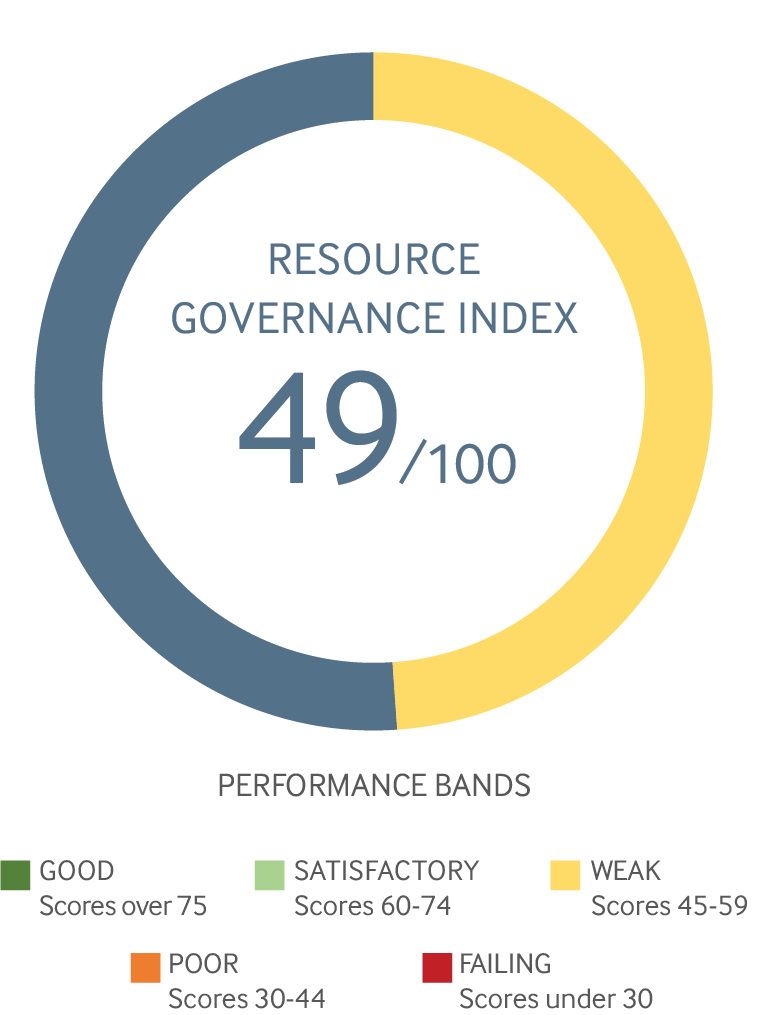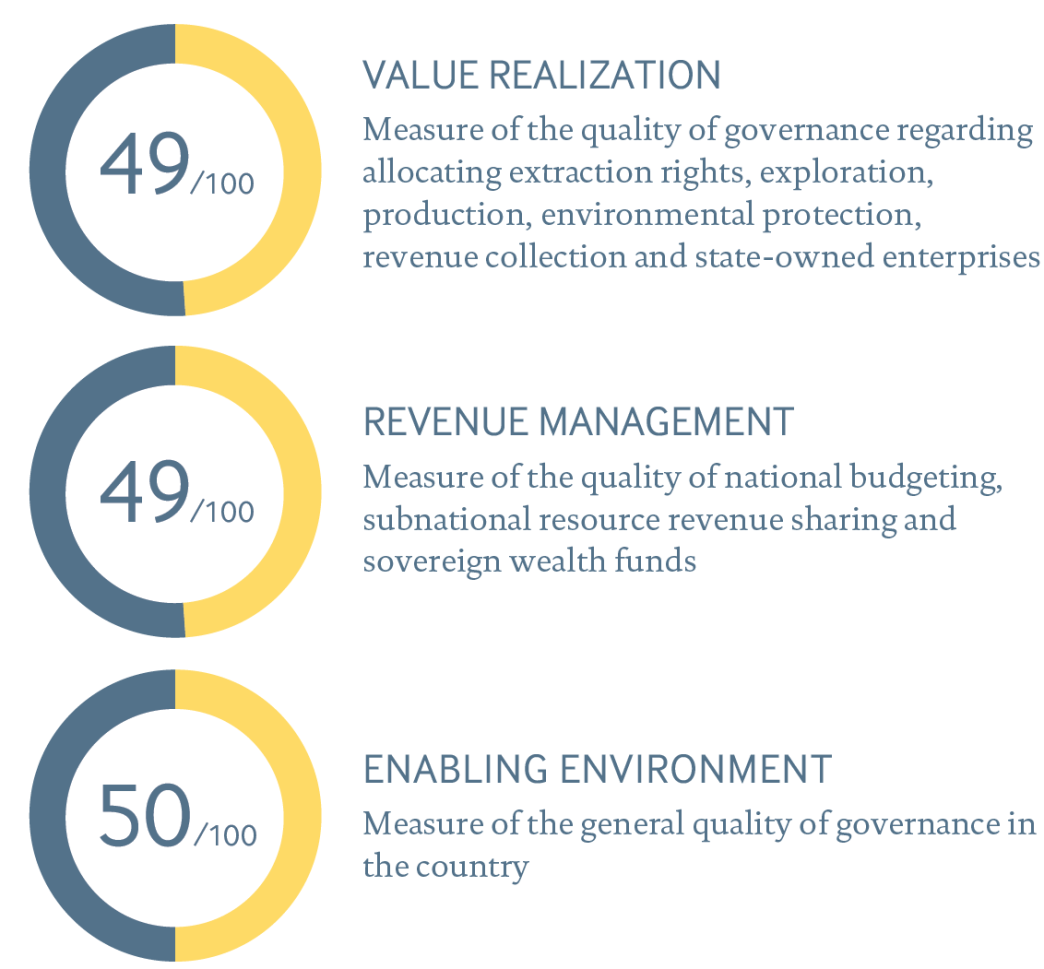
2021 Resource Governance Index: Uganda (Oil and Gas)
Read the press release.
View the launch event »
The governance of Uganda’s nascent oil and gas sector scored 49 points in the 2021 Resource Governance Index (RGI), increasing by five points from the 2017 RGI. This was driven by improvements in revenue transparency, governance of the Uganda National Oil Company (UNOC) and reporting on the performance of the Petroleum Fund. Despite the positive upward trend, challenges remain, placing the governance of Uganda’s oil and gas sector in the “weak” performance band of the RGI.
Key messages
View the launch event »
The governance of Uganda’s nascent oil and gas sector scored 49 points in the 2021 Resource Governance Index (RGI), increasing by five points from the 2017 RGI. This was driven by improvements in revenue transparency, governance of the Uganda National Oil Company (UNOC) and reporting on the performance of the Petroleum Fund. Despite the positive upward trend, challenges remain, placing the governance of Uganda’s oil and gas sector in the “weak” performance band of the RGI.
Key messages
- Oil and gas licensing received a “failing” score, hampered by the absence of a cadaster, lack of beneficial ownership rules on public disclosures and the government’s failure to disclose contracts with oil and gas companies.
- Governance of local impacts placed in the “poor” performance band, with access to environmental and social impact assessments limited by the requirement to submit an application and pay a fee in order to access information on assessments.
- Although numerical fiscal rules are documented in a public policy, these are not enshrined in law and there is no adherence requirement or monitoring by the government.
- Despite improvements to the governance of the Petroleum Fund, laws regarding deposits, withdrawals and investment rules scored as “poor” and “failing.”
Recommendations
NRGI recommends the following courses of action to improve oil and gas sector governance in Uganda:
- The government should publish contracts signed with extractive companies, to allow the public to examine whether Uganda is getting a good deal for its oil and gas.
- The government should make the identity of beneficial owners of extractive projects publicly available. While provisions exist mandating this information is provided during the licensing process, public disclosure is the necessary next step.
- The government and the National Environmental Management Authority should ensure environmental and social impact assessments and environmental mitigation plans are freely and easily accessible through its online portal.
- The government should adopt official laws setting a firm numerical fiscal rule governing public expenditure and establish an oversight authority to ensure compliance is regularly monitored.
- The Petroleum Fund should set robust numerical rules governing deposits and withdrawals, as well as firm rules governing the investment of oil revenues.
- The government and all key ministries should publish online key documents and information about the oil and gas sector, to ensure that they are easily and publicly accessible, reporting to the depth required by the Extractive Industries Transparency Initiative.

